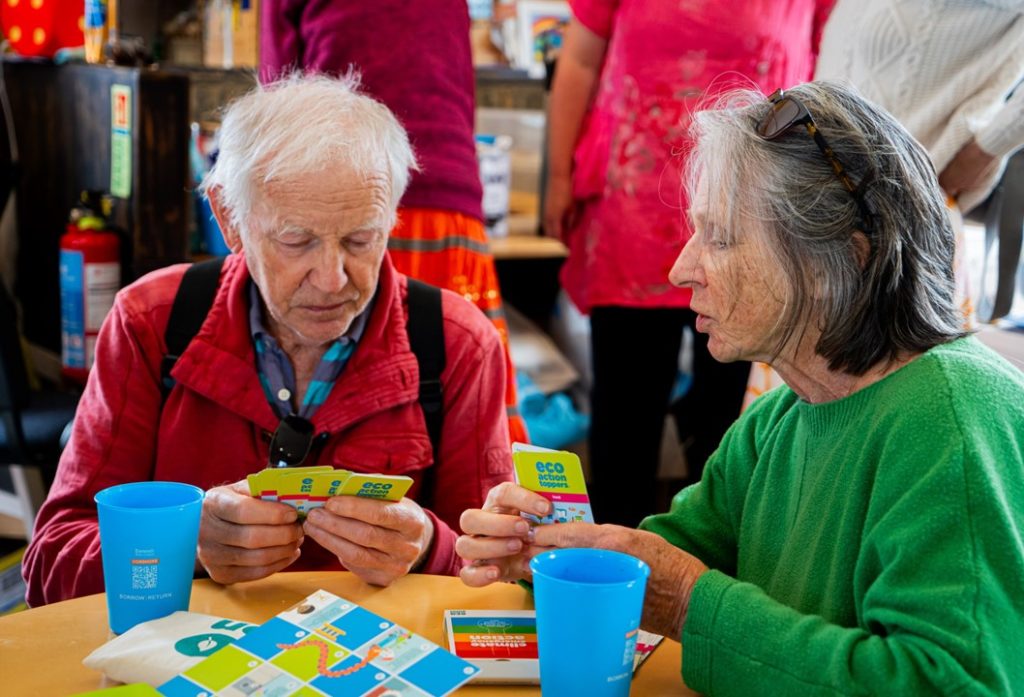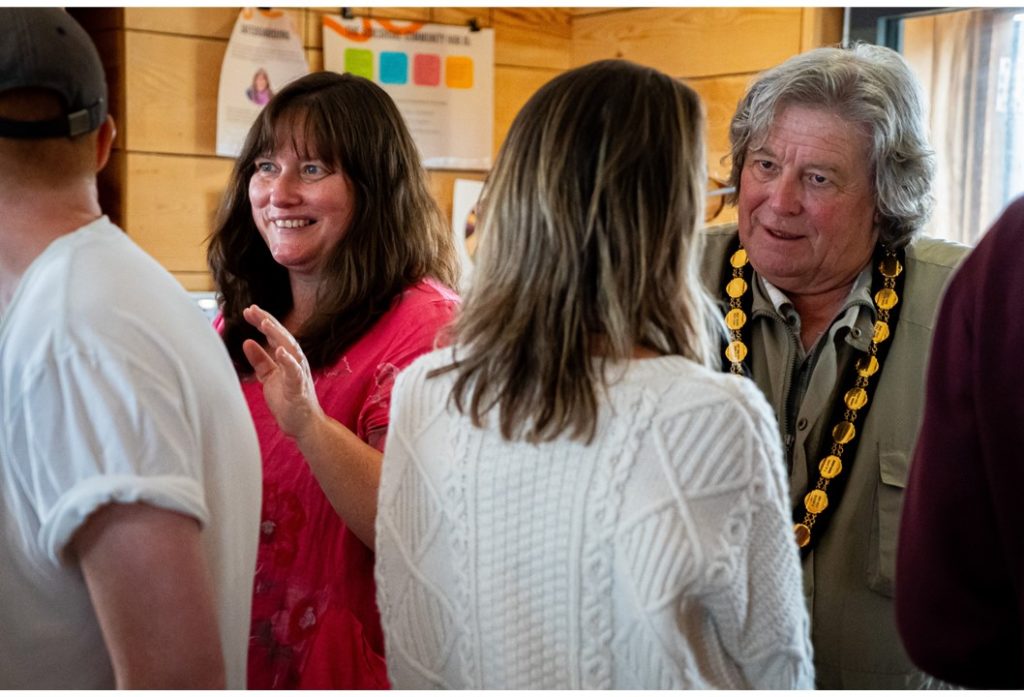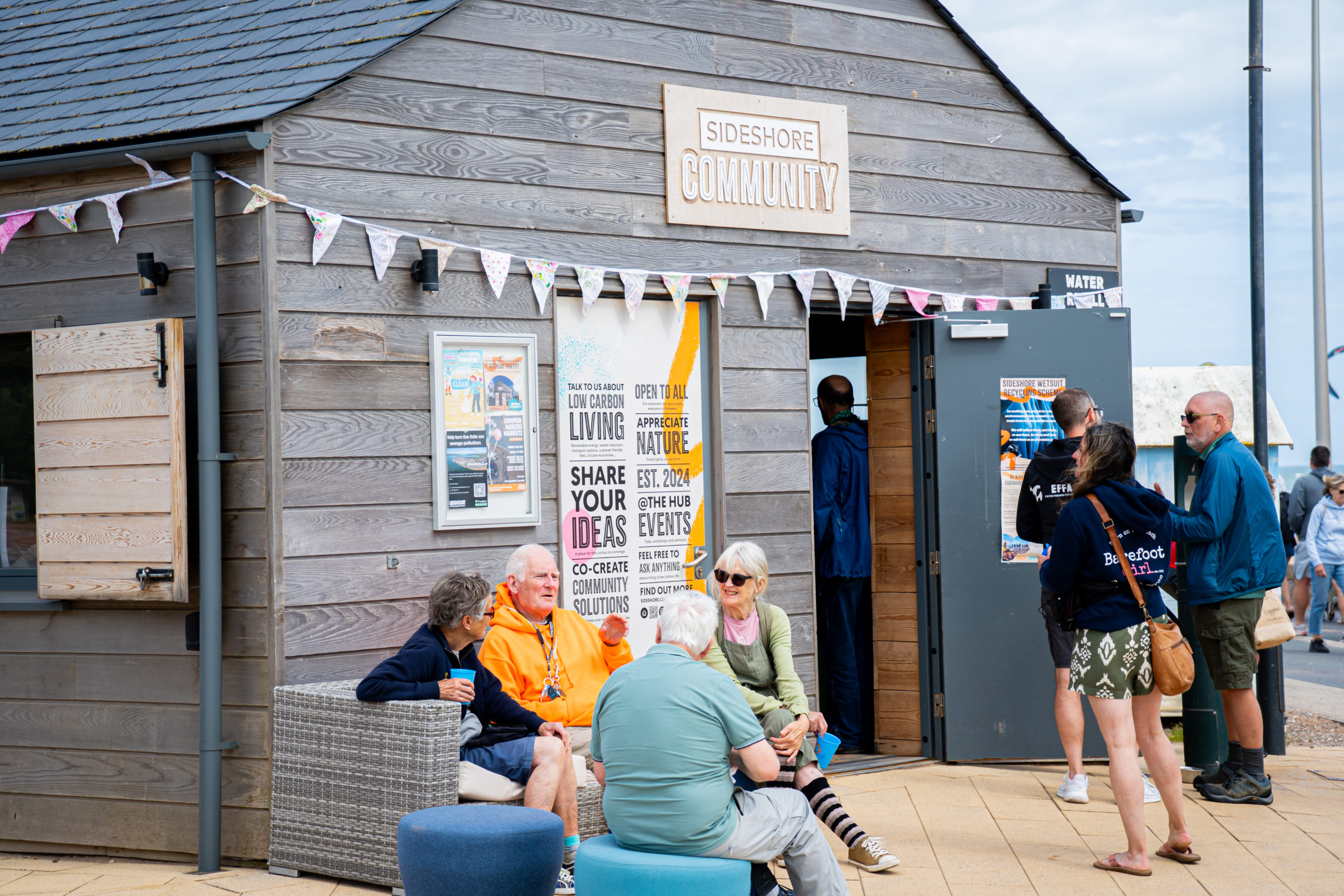Dr Louise Venables shares insights into a recent collaborative project, working with Dr Daniel Derbyshire, and Nicky Nicholls from Sideshore Community. Supported by the Engaged Participatory Research Fund, their work investigated the role of eco-hubs in engaging local communities with critical social issues.
Amount of award: £9997
Eco-hubs are green spaces dedicated to bringing urban communities to the forefront of nature conservation. In this participatory research project, we explored how community-based eco-hubs can address pressing challenges including climate change, social inclusion and mental health through local action. The study focused on the Sideshore Community Hub in Exmouth, which launched in May 2024 as a free-to-access eco-hub connecting people, promoting sustainable behaviours and nurturing wellbeing. We aimed to understand the impact of eco-hub participation on pro-environmental behaviours, mental health and wellbeing (including eco-anxiety), and social connection and community inclusion.

We partnered with Sideshore Community Hub group facilitators to design and conduct a participatory evaluation of the Hub’s impact. Activities included co-developing and distributing a survey, and holding a celebratory community event where findings were shared. The team included Hub leaders, its users, and researchers, including a Community Researcher who conducted 23 interviews with the goal of enhancing trust, participation, and relevance. These partnerships encouraged collaborative working throughout the project.
The project demonstrated a range of tangible benefits: increased pro-environmental behaviours (48.9% average uptake), enhanced community belonging (96%) and improved mental wellbeing (86%) associated with Hub attendance. For the University team, it generated publishable data and enriched experience in co-production. For the community, it offered validation, empowerment, and a platform for shaping hub development and future policy discussions. The inclusive approach also fostered trust, and mutual respect between participants.
A key challenge was balancing different timelines and expectations between academic and community partners, particularly when ethical approvals and institutional processes delayed progress. Regular, transparent communication and flexibility were essential. The co-design approach made the survey more relevant, and the Community Researcher role enabled deeper engagement and richer insights. Participants were keen to celebrate the project, and we were able to reward individuals for completing the survey through a celebratory community event at the Hub, rather than simply providing financial vouchers. This end-of-project ‘party’ was a stand-out success, and also provided an opportunity to present and discuss the findings with Hub users and policymakers, whilst raising the profile of the Hub with new visitors.

These findings will be presented at conferences (including an international climate conference), and an academic paper is currently being written for journal publication, co-authored by our community partner and co-applicant, Nicky Nicholls. We plan to apply for funding for national eco-hub research, and hope to continue collaborating with Sideshore by exploring impact assessment funding. The research has positioned us to investigate the eco-hub movement across the UK; this may ultimately result in evidence-based policy recommendations that support community environmental initiatives, promoting sustainable living, community wellbeing and inclusive engagement in climate action.
Photography credit: Melyn Moon Photography

